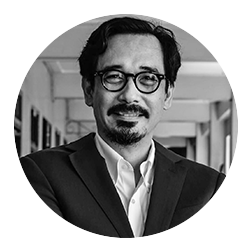 By Jose Mari B.F.U. Tirol
By Jose Mari B.F.U. Tirol
The recent passing of former President Noynoy Aquino can, in a sense, be considered as sudden and unexpected. While it appears to be the outcome of his longstanding ailments, the general public, and apparently the government itself, were not privy to their gravity.
It will take time for the pundits and the general public to process the suddenness of his death and its consequences. And it will not be unusual for people close to him and/or who share his political leanings to highlight his virtues, in the same way that those on the other side of the political fence will do the opposite.
The question “Does the opposition really need someone to die to boost their chances?” was even asked in a social media group of lawyers, law graduates, and law students; someone labelled it “necropolitics”. This is catchy, but incorrect.
In Necropolitics (2003), Achille Mbembe studied sovereignty from the proposition that it resides, to a large degree, in the power and the capacity to dictate who may live and who must die: “the capacity to define who matters and who does not, who is disposable and who is not”. We can say that our Constitution, which provides in part that “no person shall be deprived of life … without due process of law” and sanctions the imposition of the death penalty “for compelling reasons involving heinous crimes” if Congress provides for it, contains aspects of necropolitics.
But the necropolitical provisions of the Constitution are founded on due process. And Congress has abolished the death penalty, although there are proposals to reinstate it. Said provisions are not whimsical, capricious, or arbitrary, in contrast to the statements of the current President who advocates character assassination, who endorses extrajudicial killings as the prime instrument of the so-called drug war which includes labelling addicts as inhuman and dismissing as “collateral damage” those who are caught in the crossfire, who proposes to employ a “coalition” of armed civilians – a vigilante army – to “enforce the laws”, and who gives preferential treatment to some localities in the allocation of vaccines to combat Covid19, to the detriment of others.
While the elegies of the delawan do not constitute necropolitics, they may be considered as political “necromancy”, as they connect with the dead for the purpose of divination, to foretell future events, and to discover hidden knowledge. Especially because the 2022 elections are just around the corner.
However, political necromancy is not a purely delawan phenomenon. Any traditional politician will invariably to do anything and everything to elicit sympathy and support, including exploiting the peoples’ visceral reactions to the telenovela-like twists and turns of Philippine politics. See for example the politicians who abruptly ride wheelchairs and hurriedly get themselves confined in hospitals for allegedly life threatening illnesses when warrants of arrest are issued in their name, the political dynasties’ invariable invocation of the legacy of their forebears, the photos of the President crying at his parents’ graves, and his approval of the Marcos family’s insistence that their patriarch be interred at the Libingan ng mga Bayani.
We can be pragmatic – the end justifies the means (but for whose benefit?) – and resign ourselves to the presence of necropoliticians and necromancers in our midst. But should we be contented with traditional politics and politicians, and to always be haunted by ghosts of politicians past? I think not. We owe it to ourselves to aspire for the ultimate plot twist and redemption arc. To work towards the attainment of a level of political maturity and responsibility that is based on policies, ideals, and even-handedness instead of personalities, impulses, and excess.





















